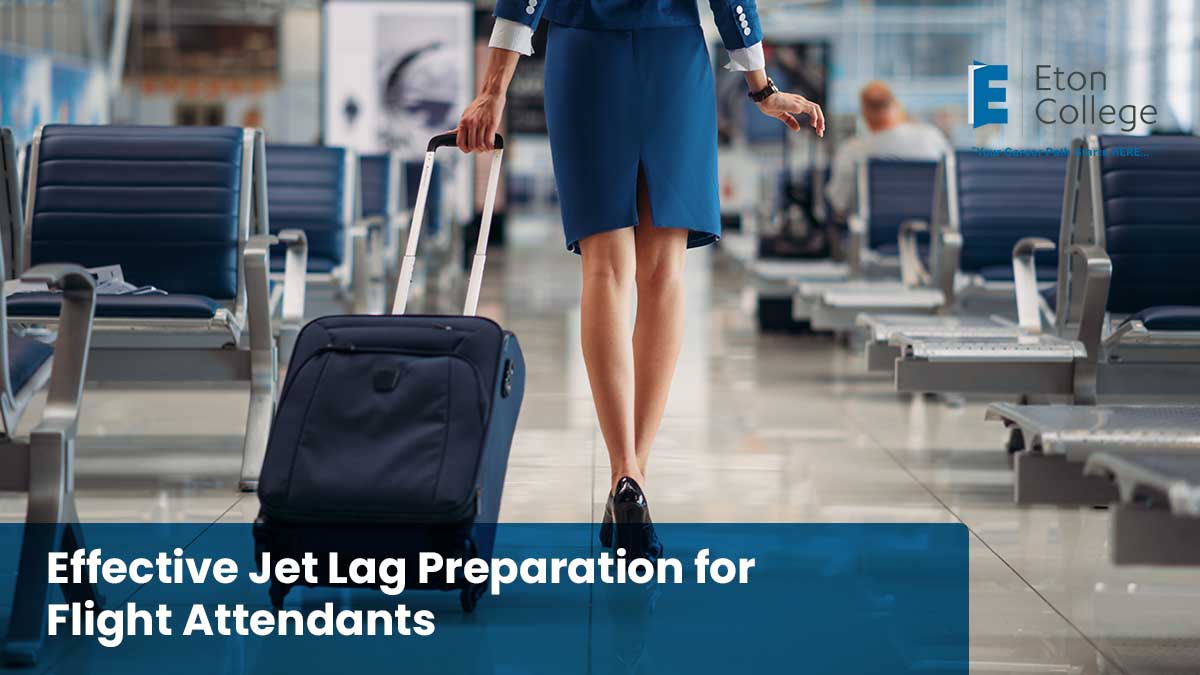Key Takeaways
- Jet lag is a common challenge for flight attendants, but it can be managed with effective strategies.
- Prioritize sleep, hydration, and natural light exposure to reduce jet lag symptoms.
- Short naps and light exercise can help you adapt to new time zones.
Being a flight attendant is more than just jetting off to exciting destinations and meeting new people. It’s a rewarding career that comes with unique challenges—one of the most common being jet lag. With irregular hours, crossing time zones, and quick turnarounds, flight attendants must learn how to manage their bodies and minds to maintain peak performance. Effective jet lag preparation for flight attendants ensures they stay sharp, energized, and ready to provide excellent service, no matter where they land.
Whether you’re a seasoned professional or just beginning your flight attendant journey, mastering jet lag management is essential. Left unchecked, jet lag can affect your energy levels, mood, and cognitive abilities, which is why building healthy travel habits is key.
1. Understand Jet Lag
Jet lag occurs when your body’s internal clock is out of sync with the local time of your destination. Symptoms include fatigue, irritability, difficulty concentrating, and disrupted sleep patterns. Understanding the science behind jet lag is the first step in mitigating its effects. Your body may take several days to adjust to a new time zone, particularly when crossing multiple time zones.
2. Prioritize Sleep Before Your Trip
One of the best ways to combat jet lag is to ensure you’re well-rested before you fly. Prioritize getting a good night’s sleep in the days leading up to your flight. If you have a long-haul flight ahead, try to adjust your sleep schedule gradually by going to bed and waking up earlier or later, depending on your destination.
3. Stay Hydrated During the Flight
The dry air in an airplane can lead to dehydration, exacerbating jet lag symptoms. Make it a habit to drink plenty of water before, during, and after your flight. Avoid excessive caffeine and alcohol, as these can dehydrate you and disrupt your sleep patterns. Hydration is key to keeping your energy levels up and reducing fatigue.
4. Adapt to Local Time
Adapting to the local time zone is essential in combating jet lag. It is important to adjust your body clock as soon as you arrive at your destination. This includes eating meals and sleeping according to the local schedule. If you arrive in the morning but feel tired, resist the urge to take a long nap. Instead, engage in light activities to keep your energy up until it’s bedtime in the new time zone.
5. Utilize Natural Light
Exposure to natural light helps regulate your body’s circadian rhythm.Soak up the sunshine and fresh air at your destination to help your body adjust to the time change. If you arrive at night, avoid bright lights and screens before bedtime to promote better sleep. Conversely, if you arrive during the day, try to soak up as much sunlight as possible.
6. Take Short Naps Wisely
While napping can be beneficial, it’s essential to manage nap duration and timing. A short power nap of 20-30 minutes can recharge your batteries without impacting your ability to sleep later. To avoid disrupting your nighttime sleep, try to limit long naps, especially in the late afternoon or evening.
7. Incorporate Exercise
Engaging in light exercise upon arrival can boost your mood and energy levels. Consider going for a brisk walk, practicing yoga, or stretching to help reduce tension and fatigue. Physical activity can also aid in adjusting your body clock to the new time zone.
8. Get Expert Guidance
If you’re aspiring to become a flight attendant, consider enrolling in the Eton College Flight Attendant Preparation Program. This comprehensive course not only covers the essentials of customer service and safety but also includes modules on managing common challenges like jet lag. With expert guidance and hands-on training, you’ll be better equipped to handle the demands of the job, including maintaining your health and well-being on long flights.
The program offers real-world insights, including tips on Jet Lag Preparation for Flight Attendants, ensuring you’re fully prepared to navigate the unique challenges of your career in aviation.
9. Explore Relaxation Techniques
Incorporate relaxation techniques into your routine to manage stress and promote better sleep. Techniques such as deep breathing, meditation, and progressive muscle relaxation can help you unwind and improve your overall well-being. A calm mind is essential for coping with the stresses of travel.
10. Seek Professional Help if Needed
If you find that jet lag consistently affects your performance or well-being, don’t hesitate to seek advice from a healthcare professional. They can provide tailored strategies and possibly recommend sleep aids if necessary.
Handling jet lag is an essential skill for flight attendants to master, especially in a role that demands high energy and focus. By prioritizing sleep, staying hydrated, adapting to local time, and incorporating relaxation techniques, you can minimize the impact of jet lag and maintain your performance on the job.
Embracing these tips and enrolling in the Eton College Flight Attendant Preparation Program will set you on the path to a successful and fulfilling career in aviation. Remember, your health and well-being are just as important as the service you provide to passengers.
FAQ
- Q: What is jet lag?
A: Jet lag is a temporary sleep disorder that occurs when your body’s internal clock is out of sync with the local time zone after traveling across multiple time zones. - Q: How can I minimize jet lag?
A: You can minimize jet lag by staying hydrated, adjusting your sleep schedule before your trip, adapting to local time quickly, and utilizing natural light. - Q: Is there any training specific to handling jet lag for flight attendants?
A: Yes, programs like the Eton College Flight Attendant Preparation Program include training on jet lag management and other essential skills for aspiring flight attendants. - Q: Can exercise help with jet lag?
A: Yes, light exercise can boost your energy levels and help your body adjust to new time zones more quickly.




